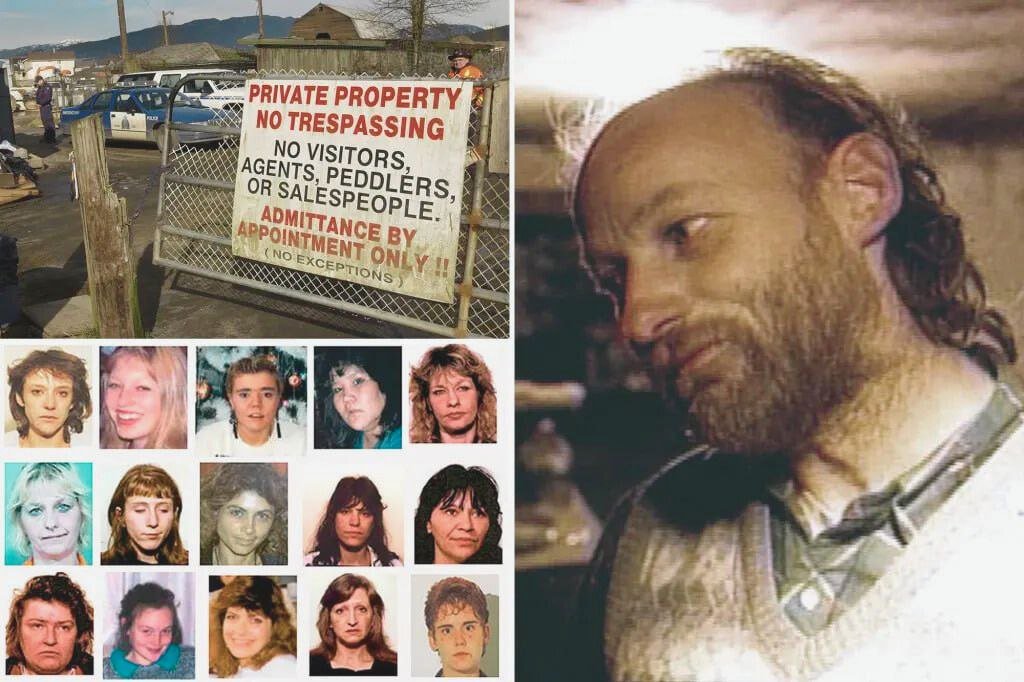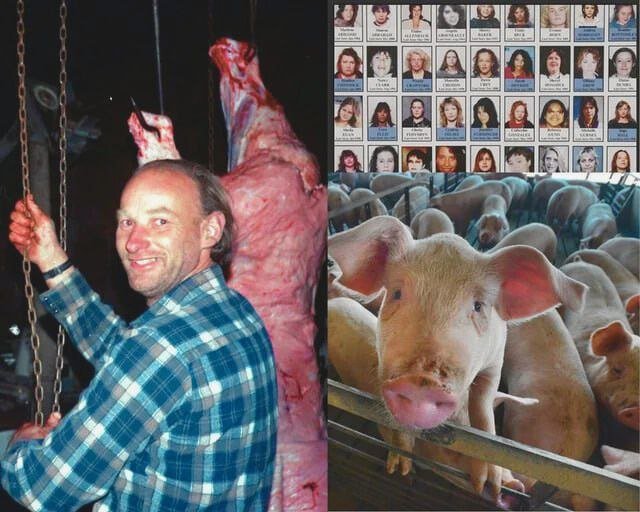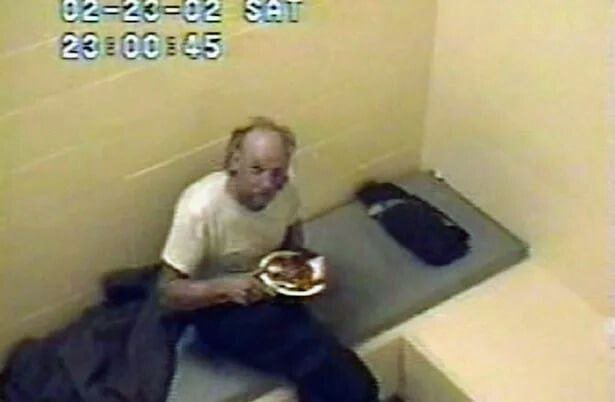Contents

Introduction to Robert Pickton and His Crimes
Robert William Pickton, infamously known as a Canadian serial killer, was born on October 24, 1949. Raised in Port Coquitlam, British Columbia, Pickton’s early life provided little indication of the horrors he would later inflict upon society. The Pickton family owned a pig farm, which would later become the site of his gruesome crimes. Despite his seemingly ordinary upbringing, Pickton’s path took a dark turn, leading to one of the most shocking crime sprees in Canadian history.
Pickton’s criminal activities came to the forefront in the late 1990s and early 2000s when numerous women began disappearing from Vancouver’s Downtown Eastside, a neighborhood known for its high rates of poverty and substance abuse. Pickton preyed on vulnerable women, many of whom were sex workers or struggling with addiction. The extent of his atrocities came to light during the investigation, revealing that he had murdered at least 26 women, though it is believed the actual number may be higher.
The pig farm, which was also Pickton’s residence, served as the gruesome backdrop for his crimes. He would lure his victims to the farm under various pretenses before brutally murdering them. Disturbingly, evidence suggested that he disposed of their remains by feeding them to his pigs, adding a macabre layer to his already heinous actions. The impact of his crimes on the community was profound, instilling fear and grief among the residents and the families of the victims.

Pickton’s capture in 2002 marked the end of his reign of terror. A search of his property yielded overwhelming evidence, including remains and personal belongings of the missing women. In 2007, he was convicted of six counts of second-degree murder and sentenced to life in prison without the possibility of parole for 25 years, the maximum sentence under Canadian law at the time. This conviction brought some measure of closure to the affected families and the broader community, though the scars of his crimes remain.
Details of the Prison Attack
The attack on Robert Pickton occurred within the confines of Kent Institution, a maximum-security prison located in British Columbia, Canada. The incident took place during the evening hours, when prisoners were typically confined to their cells. According to preliminary reports, the attack transpired swiftly, catching both inmates and prison staff by surprise.
The assailant, whose identity has not been publicly disclosed, managed to breach the security measures in place. Armed with a makeshift weapon, the attacker inflicted multiple injuries on Pickton, targeting vital areas. The rapid escalation of violence prompted an immediate lockdown of the facility. Prison guards intervened promptly, utilizing their training to subdue the assailant and restore order.

Following the attack, medical personnel were swiftly summoned to the scene. Despite their prompt response, the severity of Pickton’s injuries necessitated advanced medical intervention, which ultimately proved insufficient. Prison officials have since confirmed that Robert Pickton succumbed to his injuries shortly after the attack.
In the wake of the incident, statements from Kent Institution’s administration have underscored their commitment to a thorough investigation. The warden expressed deep concern over the breach of security protocols and assured the public that an internal review is already underway. Additionally, external law enforcement agencies have been engaged to conduct an independent investigation, ensuring comprehensive scrutiny of the events leading up to the attack.
Prison officials have also emphasized their dedication to maintaining the safety of both inmates and staff. Measures are being implemented to prevent such incidents in the future. These include a reevaluation of security procedures and increased surveillance within the facility. The broader implications of the attack on prison safety protocols are expected to be a focal point of the ongoing investigations.
Reactions from the Public and Authorities
The death of Robert Pickton has elicited a wide range of reactions from the public and authorities alike. Family members of the victims have expressed a mixture of relief and unresolved grief. Lisa Smith, whose sister was one of Pickton’s victims, stated, “While his death does not bring my sister back, it does bring a sense of closure to a long and painful chapter in our lives.”

Law enforcement officials have also weighed in on the matter. Detective John Harris, who was involved in the original investigation, remarked, “Pickton’s death closes a chapter, but it also serves as a reminder of the atrocities he committed. Our focus remains on supporting the victims’ families and ensuring that such crimes do not happen again.”
Legal experts have offered their perspectives as well. Dr. Emily Turner, a criminologist, noted, “The death of a high-profile criminal like Pickton raises important questions about prison safety and the effectiveness of our justice system. It is imperative that we examine the conditions that allowed this attack to occur.”
Public demonstrations and social media reactions have been equally varied. Some individuals have taken to the streets, holding vigils in memory of the victims, while others have expressed their opinions online. On Twitter, the hashtag #JusticeForVictims trended, with users sharing their thoughts on Pickton’s death. One tweet read, “Finally, a semblance of justice for the victims and their families. Rest in peace to those lost.”
News coverage has been extensive, with major media outlets providing continuous updates and expert analysis. Articles and opinion pieces have highlighted the complexities of the case, the impact on the victims’ families, and broader societal implications. This balanced view captures the multifaceted nature of public sentiment, ranging from a sense of justice being served to ongoing concerns about the state of prison security.
The Legacy of Robert Pickton’s Crimes
Robert Pickton’s heinous crimes have left an indelible mark on Canadian society, prompting significant changes in laws and policies related to serial crimes and prison security. His case exposed severe lapses in the criminal justice system and galvanized public demand for comprehensive reforms. As a direct result, Canadian authorities have implemented stricter regulations regarding the investigation and prosecution of serial offenders. These changes aim to prevent similar tragedies and ensure that law enforcement agencies are better equipped to handle complex criminal cases.
Pickton’s actions have also been extensively depicted in media and popular culture, serving both as a reminder of the atrocity and a cautionary tale. Documentaries, books, and films have explored the brutal nature of his crimes and the systemic failures that allowed him to evade capture for so long. These portrayals have not only kept the memory of the victims alive but have also sparked broader discussions about the societal factors that contribute to such crimes. By scrutinizing the media coverage and artistic representations of Pickton’s case, one can observe the intricate interplay between real-life events and their interpretation in popular culture.
In the wake of his crimes, there has been a concerted effort to provide ongoing support and resources to the families of his victims. Various organizations and advocacy groups have emerged to offer counseling, legal assistance, and emotional support to those affected. These initiatives underscore the importance of addressing the long-term impact of violent crimes on victims’ families, helping them to navigate their grief and seek justice.
Moreover, Pickton’s case has intensified the conversation about violence against vulnerable populations, particularly women in marginalized communities. It has highlighted the urgent need for targeted interventions and support systems to protect these groups from exploitation and abuse. By fostering awareness and driving policy changes, the legacy of Robert Pickton’s crimes continues to influence efforts aimed at creating a safer and more just society.
OUR SITE: toinewsalert.com
Atlanta’s Water Supply Disruption: Understanding the Recent Repairs
Atlanta’s Water Supply Disruption: Understanding the Recent Repairs
When Brad Pitt Turns Eighteen, His Daughter Angelina Jolie Petitions to Remove Her Father’s Last Name:
The Contentious Legacy of Eminem’s Peroxide-Blond Alter Ego, Slim Shady
The Contentious Legacy of Eminem’s Peroxide-Blond Alter Ego, Slim Shady
